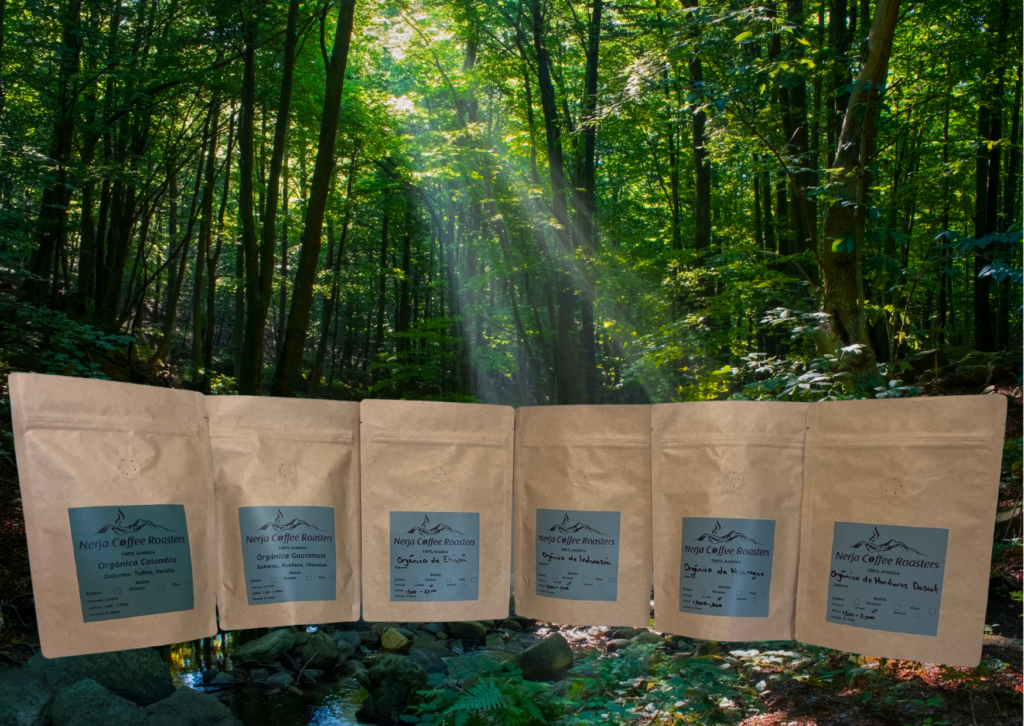Why choose organic products?
At Nerja Coffee Roasters we are a certified organic coffee roaster. When we started our company, we couldn't find any certified organic coffee, so we looked for Fairtrade and other certifications, but very soon we realised that we wanted to go organic, so we started looking for organic coffees. Unfortunately, there were not many organic coffees available, but we kept going to find as many as we could.

The reason we chose Organics.
We have two children and since we were kids we have seen that the quality of food has gone down a lot and this coupled with climate change already made us decide years ago that we should do our part to help the planet as much as we can. Five years ago we went vegan and since then we have tried to live as sustainably as possible, growing many of our vegetables and composting all our food waste. Now that we have our business we want to continue to honour the sustainable way of life. We understand that conventional farming is having a really detrimental impact on our planet and the more we research it, the scarier it gets. For us, organic farming is the only way forward.
In the coffee industry, for example, you can listen to the podcast linked by James Harper who talks about Honduras in the 1980s and how all the coffee farmers were getting sick. The reality of conventional agriculture using all these chemicals in pesticides, fungicides and fertilisers is that they are making us sick. With the rise of inflammatory diseases, we know they are caused by exposure to toxins. There is no food monitoring to find out how much of these residual chemicals are getting onto our plates. I think the worst thing is that it is a vicious circle. Take strawberries for example: when I was a child they were so tasty. Now, because of the lack of nutrients in the soil due to the constant use of fertilisers to help them grow quickly, they are no longer sweet and tend to taste watery. This affects the whole food chain, so companies are adding artificial flavours and lots of sugar to food, which in turn is making us sick. So it comes from many angles!
Complex connections
The consequences for our soil are also a big problem. Conventional agriculture also promotes monoculture and tillage, which means that the soil lacks nutrients and its root structure is decimated at harvest time. This results in higher temperatures on bare soil and, in times of heavy rainfall, the soil is washed away. Organic farming promotes the use of natural fertilisers such as compost and cover crops to replenish soil nutrients and reduce temperatures by keeping the soil covered for longer. In addition, root systems penetrate the soil and allow water and air to filter through, which improves growing conditions and reduces the need for additional fertilisers. Finally, these root systems are one of the best ways to extract carbon from the air and embed it in the soil, thus helping to combat climate change. So healthy soil creates healthy food, healthy humans and a healthier planet.
It is clear from the above paragraphs that many of the issues related to the search for healthy food are connected. At times it has been overwhelming to think that we could make a difference, but we know that by doing our part at home and in our business, especially by choosing organic coffees, we are helping. We know that farmers who choose organic practices are also moving towards regenerative and sustainable practices, so we believe we can do our part by buying their coffee. The more we choose organic, the better the practices will be, because right now organic certifications are expensive, which doesn't allow everyone to access them, whereas if organic practices become the norm, then they will come down in price.

